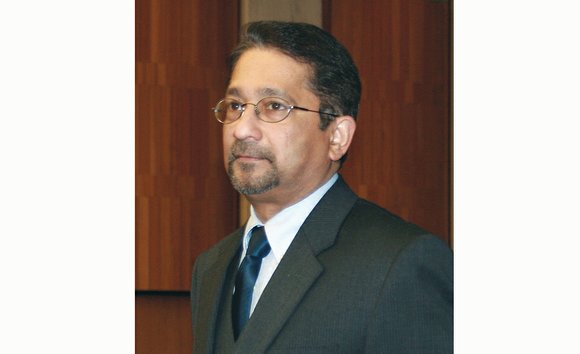City auditor facing criticism of his own
7/14/2017, 7:14 a.m.
By Jeremy M. Lazarus
Umesh Dalal has put many of the bureaucrats at Richmond City Hall in the hot seat during his 11 years as city auditor.
Now, it’s his turn.
Next week, Richmond City Council plans to meet in closed session to consider whether to continue Mr. Dalal’s tenure in the office that puts city departments under a microscope to ensure that taxpayer dollars are properly spent and to ferret out waste, fraud and abuse of city resources.
Like the city attorney, city assessor and City Council clerk, Mr. Dalal is a council appointee. Previously the internal auditor for the cities of Arlington, Texas, and Tempe, Ariz., he came to Richmond in 2006.
City Hall sources have told the Free Press that Mr. Dalal is under fire for his management of the auditor’s office.
While Mr. Dalal has won praise for his office’s work and garnered public attention for his fights to gain access to City Hall financial data and other information needed for probes into city spending, his relations with his staff reportedly have been fractious and full of friction.
This is not a new situation.
For years, the council has been peppered with complaints from employees in his office. City Council members privately have expressed concern about the office’s high employee turnover rate, which reportedly averaged 30 percent in the four years between 2013 and 2016.
The auditor’s office is authorized to have 14 employees; the turnover rate indicates that at least five employees have left in each of those four years.
In 2016, the council held several closed sessions with Mr. Dalal about management of his office and since commissioned an internal review.
The council meeting set for Monday, July 17, comes after what is being described as a staff revolt. While Mr. Dalal recently was away from his office, virtually every member of his staff went to see one or more council members to urge his removal, the Free Press has been told.
As one council member put it, “The question is whether the atmosphere in the office is now so poisonous that it affects the work. If that is the case, then something would have to be done.”
The meeting, ironically, follows the release of the latest report from Mr. Dalal’s office that found that the Department of Public Utilities appears to have wasted nearly $2 million hiring a consultant to change a workplace culture that has left employees unhappy.
According to the stinging report dated June 21, TMI Consulting has been paid $420,000 annually since August 2013, or at least $1.8 million to date, but the program has had little significant impact on the agency directed by Robert Steidel.
Led by Tiffany Jana, an ally of Mayor Levar M. Stoney, TMI beat out three other consulting firms for the contract to assist management with improving the utilities department culture and atmosphere.
As Ms. Jana described it, “employees felt disengaged due to the lack of pathways for growth, excessive drama in the office, poor management and a general lack of recognition and consistency in the workplace, especially with accountability” for how the work gets done and who gets “recognition and access to opportunity.”
The trigger for the five-year effort to change the culture came from complaints about racial discrimination involving some supervisors dating back to 2010. The complaints went public in 2011 and ultimately led to a lawsuit in which African-American pipefitters in the department sued DPU and the city over racial discrimination in training, pay and promotions. The suit ultimately was settled in the employees’ favor.
According to Mr. Dalal’s report, employee surveys conducted by TMI since 2013, as well as a separate survey by an independent consultant, found that “work conditions have not substantially improved since the inception of the project. An atmosphere of low morale, stress and high anxiety continues.”
The report also states that DPU workers “have lost trust in a management system that is supposed to be unbiased and provide equal opportunity to all employees.”
Instead, “employees allege management by intimidation and a continual shortage of resources” to do their jobs safely and effectively.
In addition, employees “continue to be frustrated with a lack of equal opportunity for development and advancement,” while “the organization struggles to hire and retain talent, leaving crews short-staffed for long periods, leading to service and safety issues,” the report states.
Mr. Steidel is quoted in the report as explaining that employees believed the program would address issues that were not covered by the program and became upset when their expectations were not met. He also indicated that employees might not trust management.
In the report, Mr. Dalal questions why the program was continued instead of being changed to address the issues that concern employees and the failure of Mr. Steidel and his staff to properly ensure the program was generating improvements.
Mr. Dalal’s recommendation: End the contract with TMI and shift the resources to address employee concerns.
He also recommended that DPU capture data on the original issues of diversity development, promotion and opportunity and specifically track improvements in those areas.
And he called on DPU to establish expectations and timelines for the 700 Strong Program to make the work environment more employee-friendly and to spend more time working on pay and related issues to improve worker satisfaction.








